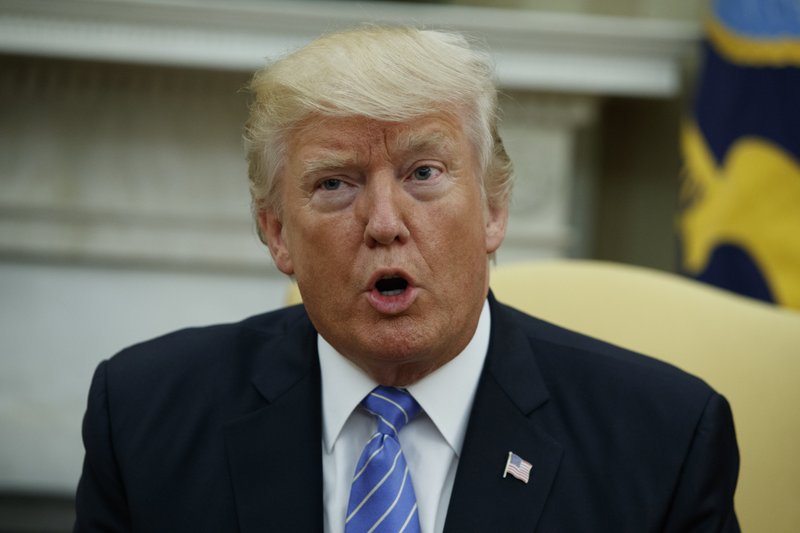WASHINGTON -- President Donald Trump's administration is considering banning travel by U.S. citizens to North Korea, officials said Tuesday, as anger grew over the death of American student Otto Warmbier.
Secretary of State Rex Tillerson, who has the authority to cut off travel to North Korea, has been weighing such a move since late April, when American teacher Tony Kim was detained in Pyongyang, a senior State Department official said. No ban is imminent, but deliberations gained new urgency after Warmbier's death, said the official, who requested anonymity to discuss internal diplomatic discussions.
From Capitol Hill to the White House, pressure mounted for a tough U.S. response, even as U.S. diplomats sought to protect other Americans from facing a similar fate. Three other U.S. citizens, including Kim, are still being held in North Korea.
"It's a total disgrace what happened to Otto. That should never ever be allowed to happen," Trump said in the Oval Office.
[PRESIDENT TRUMP: Timeline, appointments, executive orders + guide to actions in first 100 days]
Suggesting former President Barack Obama bears some blame, Trump said "the result would have been a lot different" had Warmbier been brought home sooner. Obama's office had no reaction, but his former aides have said he worked tirelessly to try to get Warmbier and other Americans released from North Korea.
Warmbier, 22, died Monday in his home state of Ohio, his family said, just days after being released in a coma by North Korea. The former University of Virginia student had been visiting North Korea on a tour group when he was detained, sentenced to 15 years of hard labor for subversion, and held for more than 17 months. The circumstances of his coma and death remain unclear.
Barring Americans from going to North Korea would mark the latest U.S. step to isolate the furtive, nuclear-armed nation and to protect U.S. citizens who may be allured by the prospect of traveling there.
The U.S. government strongly warns Americans against travel to North Korea but doesn't prohibit it despite other sanctions targeting the country. It's unclear exactly how many Americans go to North Korea each year. Those who do typically travel from China, where tour groups market trips to adventure-seekers.
Some of those companies -- including China-based Young Pioneer Tours, which took Warmbier to Pyongyang -- have now stopped taking Americans. Other travel companies say they're considering a similar restriction.
The U.S. and North Korea have no diplomatic relations. The U.S. has been pressing North Korea to halt its nuclear weapons development and urging China and other countries to starve the North of funding for the program. On Tuesday, Trump suggested that strategy had failed.
"While I greatly appreciate the efforts of President Xi & China to help with North Korea, it has not worked out," Trump wrote on Twitter. "At least I know China tried!"
In Congress, Democrats and Republicans found consensus in denouncing the North. Several senators said they were considering a travel ban. In the House, lawmakers lined up behind legislation from Rep. Adam Schiff of California, a Democrat, and Rep. Joe Wilson of South Carolina, a Republican.
Under their proposal, the Treasury Department would be ordered to prohibit all financial transactions related to travel to North Korea by Americans, unless specifically authorized by a U.S. license. No licenses would be issued for tourism.
The Trump administration doesn't need an act of Congress to bar Americans from traveling to North Korea.
Under existing law, all it would take is a designation by Tillerson -- called a geographic travel restriction -- to make all American passports invalid for travel to North Korea. To back up the designation, Tillerson could assert that Americans face "imminent danger" to their health or safety if they travel there.
Information for this article was contributed by Ken Thomas, Matthew Lee, Matthew Pennington and Richard Lardner of The Associated Press.
A Section on 06/21/2017
